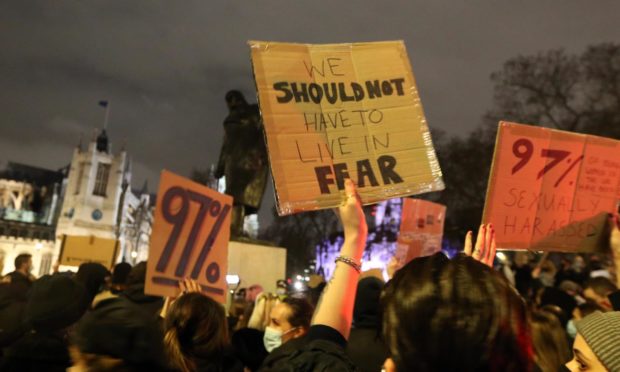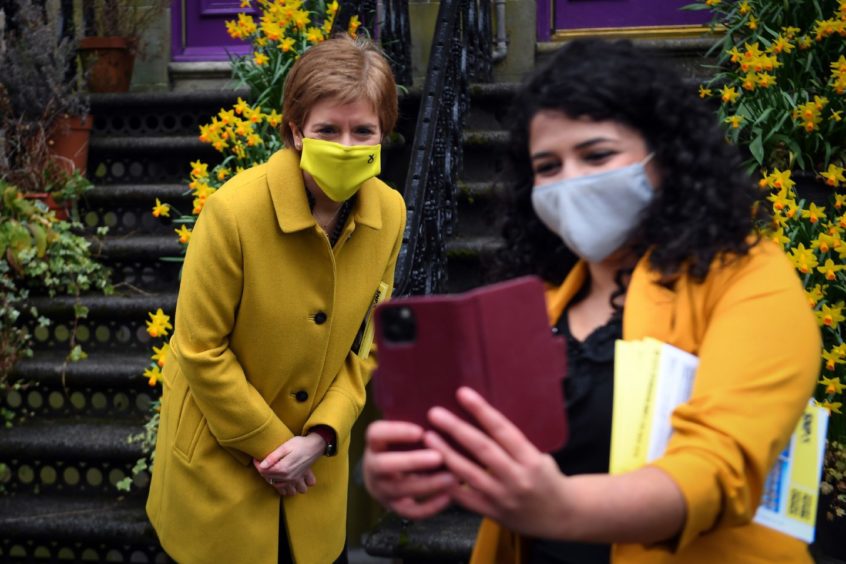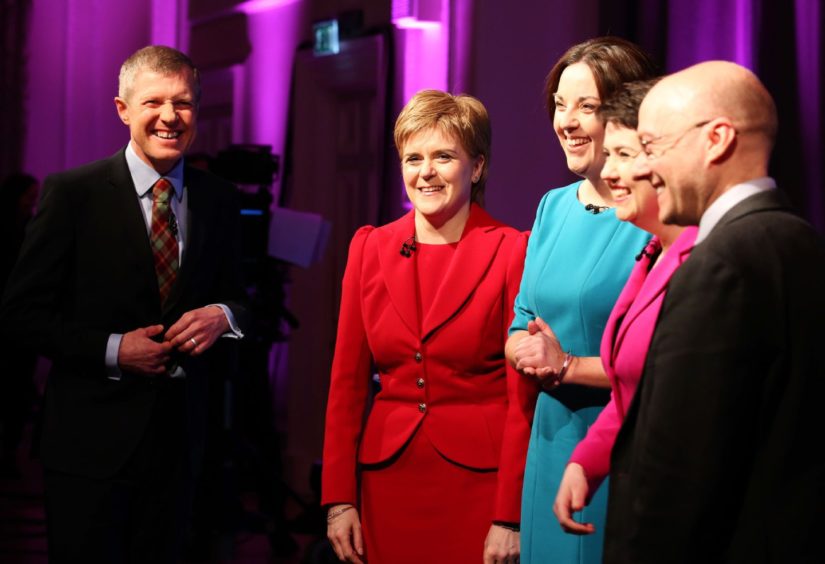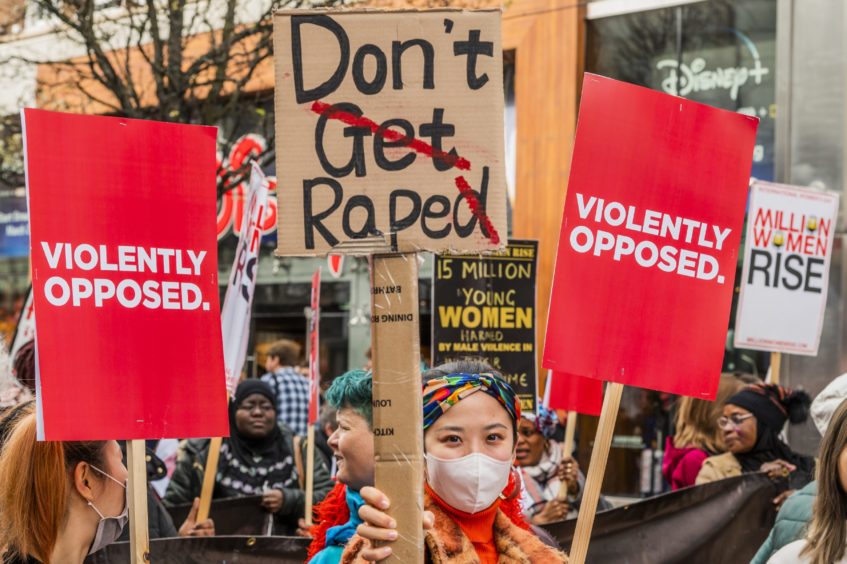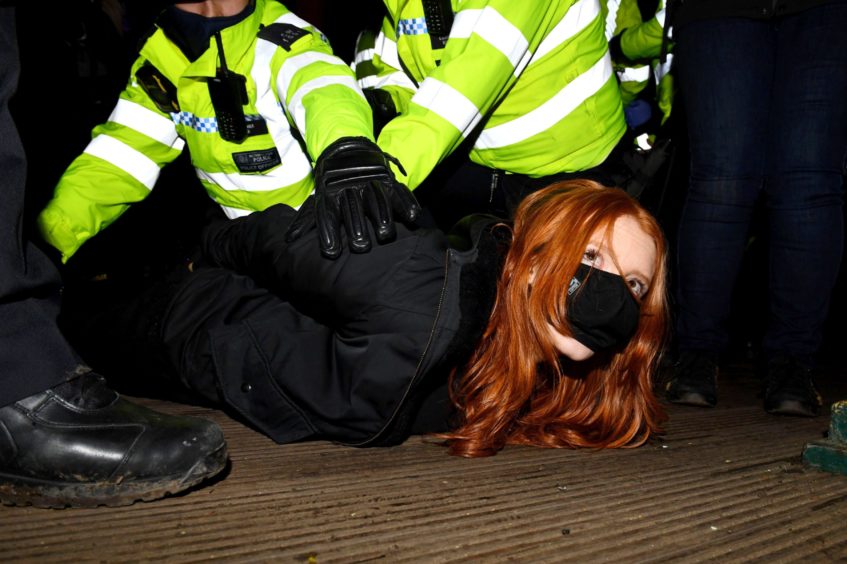Nicola Sturgeon has said the campaign for 50/50 representation of women and men in public office is “the most influential in Scottish politics”.
Yet of the 79 candidates the SNP is running for constituency seats in this election, only 30 are female.
Perhaps she meant “most important”, but that would downgrade Indy.
As a successful women who rose to the top in a macho environment, it doesn’t pay to nitpick too far. We know she is serious about women’s rights.
We also know it is an issue far from settled, yet only intermittently engaged with in politics. If only true equality were pursued with the focus of Scottish independence, we might be living in a better place.
Holyrood has made advances on correcting the male bias in politics, but the scales are far from balanced. Of the five first ministers since 1999, Sturgeon is the only woman. At one point, the top parties were all led by women (Sturgeon, SNP; Davidson, Tories; Dugdale, Labour) which seems an achievement.
Yet it does smack of a job half done. The campaign for 50/50 says it’s not good enough.
“Despite making up 52% of the population, in Scotland women only make up 42% of public board members, 25% of public board chairs, 35% of MSPs and 29% of councillors,” the organisation says.
“It’s not good enough, and it is estimated that unless radical change is pursued, it would take another 50 years for us to reach an equal parliament.”
This, of all elections, could have been one about real equality. It comes after a political scandal, trial, three inquiries about what constitutes acceptable intimacy and what is abuse. The Salmond business will dominate histories of early devolution, but not, apparently, its politics.
We don’t have to rehash the events of Bute House endlessly to see we have an opportunity to properly address the great injustice of male power over women. To move on, or see it purely as a political scandal, is to miss the point.
Of course, the equality factor might be at work beneath the surface. The popularity of the SNP is, in part, connected to decent people feeling Sturgeon stood firm against a bully. However, the issue is not explicit.
The most important issue in western democracies, virus aside, is the contagion of male abuse against women. How the concept of equality is undermined every second of every day by a power inbalance in favour of men
Yet again the curtain is pulled back to reveal the core dysfunction of society. It is time we stopped and stared, and did something about it,
The most important issue in western democracies, virus aside, is the contagion of male abuse against women. How the concept of equality is undermined every second of every day by a power inbalance in favour of men.
One of the most exciting trends in politics has been the younger generation challenging male authority. It has the feeling of a paradigm shift, of real change.
We can patronise the ‘woke’ and see cancel culture for its incoherence, but to dismiss the motive of these trends is a mistake. A generational shift is being demanded. The things my peers and I put up with are no longer acceptable. That seems wholly sensible.
Since the death of Sarah Everard, who vanished from the streets of London before her body was found dumped in the countryside, there have been two main reactions. A righteous anger at the crime, along with calls to end male violence against women, and a debate around the decency of men.
The first seems important, the second irrelevant.
In no other aspect of moral judgement or the pursuit of laws which are fair and just do we start with an assessment of male character. Most burglaries are committed by men. We don’t agonise that all men might be burglars, or burglary is a natural instinct that can’t be tamed. We say, burglary is a crime and must be punished.
This is not a question of whether all men are bad, or just some. What matters is where we draw the line for the inappropriate, the socially repugnant and the criminal. So far, we have been cautious as a society in testing this. It’s time we got tough.
I’m bored of liberal men self abasing themselves in a bid to appear non-threatening, or of women writing articles declaring not all men are bad. That’s not the point.
The age of male indulgence is over. There is many a man who will sigh in relief at the thought. No more requirement to listen to sexist stories, no more quiet shame at the excesses of the lads
What matters is how we set social expectations, and how we draft laws. In that, we have been too lenient.
True 50/50 representation was once an important ambition. As a measure of women’s equality, it serves a function of sorts. However, it feels minor to the greater cause of all our elected representatives setting a new bar on what’s tolerable and what’s not.
The age of male indulgence is over. There is many a man who will sigh in relief at the thought. No more requirement to listen to sexist stories, no more quiet shame at the excesses of the lads.
It will, of course, take time, but there is no cause greater – that our daughters and sons grow up equal, without fear. And no better time to change.
Read more by Alex Bell:
